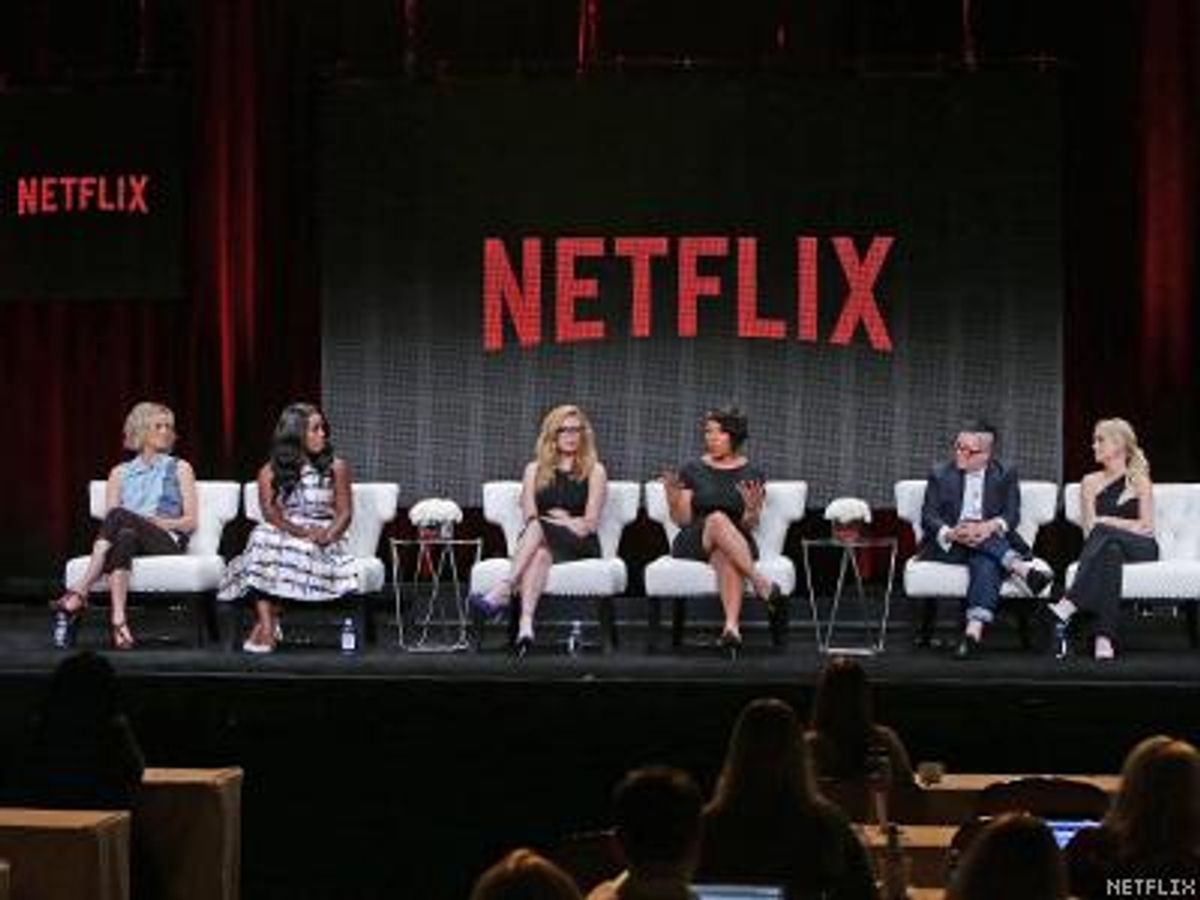The cast of Netflix's breakout hit Orange Is the New Black told critics this week that they are proud of the impact their show's diverse casting and inclusive storytelling has made.
Dateline Hollywood reports that during an interview earlier this week with members of the Television Critics Association, cast members acknowledged that the show, set in a federal prison, is not only in the vanguard of television's depiction of both LGBT characters and women of color, it also plays a role in cultural acceptance of LGBT individuals.
"What we've done is a large part of the LGBT community getting rights, fighting for rights and achieving our rights. It's been about winning the hearts and the minds of people, and Orange Is Tthe New Black has been an important part of what has happened in our community," said out actress Lea DeLaria, who plays Litchfield Penitentiary's resident butch lesbian, Big Boo.
Her cast mate Natasha Lyonne (Nicky Nichols) agreed, calling the show "extraordinary" and "profound."
"We're thrilled that we got to be part of this moment and time, being these proxy representatives of things we believe in," Lyonne said.
The show's third season features a story arc about several Litchfield ladies bullying transgender inmate Sophia, portrayed by transgender actress Laverne Cox.
Cast member Selenis Leyva (Gloria Mendoza) said that for her the story was personal, and filming a scene in which her character and Sophia have a violent argument took a lot of preparation.
"I have a transgender sister myself. I had to say things that might be in a fight on a daily basis. It was a hard scene to do, particularly so that I didn't offend her," Leyva said. "The scene had to be done in a way as to educate, rather than foster more hate. I had a conversation with [OITNB creator] Jenji [Kohan] that I didn't want Gloria to be the villain."
Leyva observed that the groundbreaking series has emboldened other shows to add more diverse characters.
"We're showing the world that it's OK to have different women and people represented," Leyva said, crediting Netflix for its boldness. "We started a trend, and that trend is to be diverse -- to be a butch, to be a Latina -- we started something."


















































































